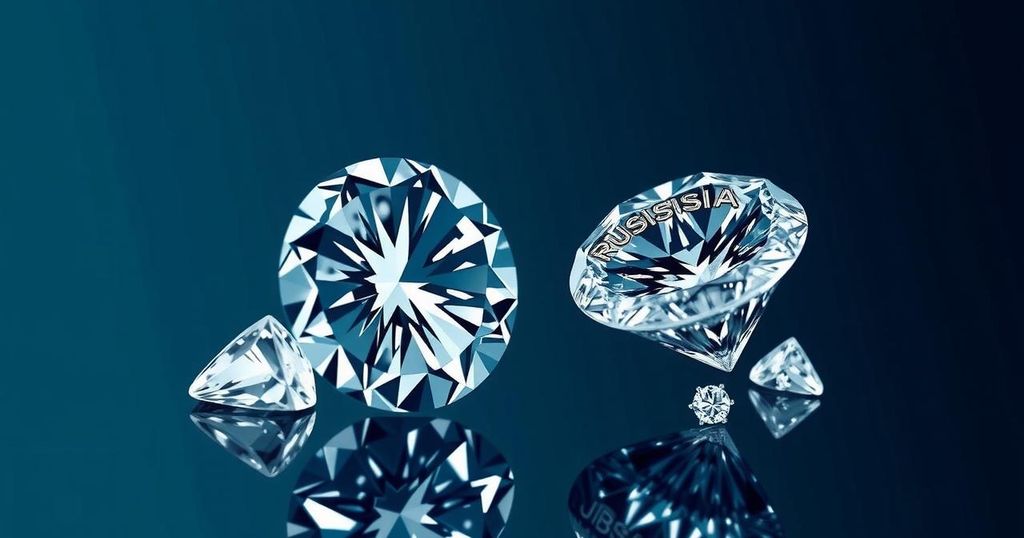Botswana and Angola are enhancing cooperation with the EU and G7 to curb Russian diamond imports, aiming to enforce sanctions and ensure transparency in the diamond industry. Prior to sanctions, Russia supplied significant diamond volumes to Belgium, with imports declining sharply after the onset of the Ukraine war.
In a significant move to counter Russian influence in the diamond market, Botswana and Angola have forged stronger ties with the European Union and the Group of Seven (G7) nations. As of earlier this year, the G7 and EU imposed sanctions on Russian diamonds to diminish funds for Russia amid its ongoing conflict with Ukraine. However, effective traceability and transparency measures are crucial to prevent Russian diamonds from re-entering the Western markets through complex trading networks prevalent in the industry.
Russia stands as the largest global producer of diamonds, responsible for approximately one-third of the diamonds processed through the Antwerp trading hub prior to the sanctions. In 2021, Belgium imported €1.8 billion in Russian diamonds; however, this figure decreased to €1.4 billion in 2022, following the escalation of Russia’s military actions in Ukraine.
The diamond trading sector is historically opaque, with intricate supply chains that complicate the verification of diamond origins. The sanctions targeting Russian diamonds were introduced to strategically diminish the revenue stream that supports its military activities in Ukraine while simultaneously encouraging alternative diamond producers, such as Botswana and Angola, to enhance their collaborations with Western entities. This alignment reflects a broader geopolitical strategy, seeking to undermine Russia’s economic foothold in the diamond market.
The strategic partnerships between Botswana, Angola, and Western nations mark a critical juncture in the global diamond trade, responding to geopolitical tensions fostered by Russia’s actions. By reinforcing cooperation and implementing strict traceability measures, the West aims not only to enforce sanctions effectively but also to promote transparency within the diamond industry. This initiative reflects a concerted effort to reshape the diamond supply chain, reducing Russian influence and securing a more stable and ethical sourcing of diamonds.
Original Source: www.politico.eu






